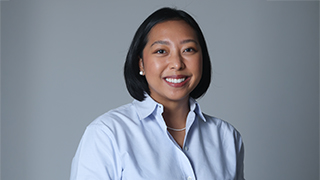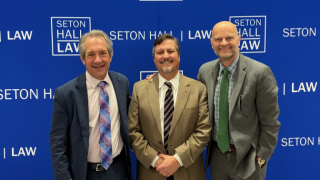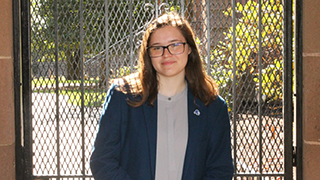Global Health Expert Featured in Foreign Affairs, TIME, NBC News, NPR and The New York Times
Thursday, February 4, 2021
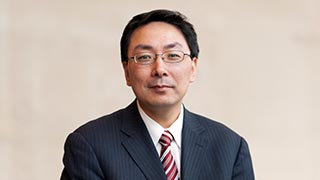
Huang specializes in the security and foreign policy aspects of health issues and authored the book Governing Health in Contemporary China and is the founding editor of Global Health Governance: The Scholarly Journal for the New Health Security Paradigm. He has written extensively on global health governance, health diplomacy, health security, public health in China and East Asia, and his research covers three top priorities of the Biden administration: China, the environment and public health.
In his latest book, Toxic Politics: China's Environmental Health Crisis and its Challenge to the Chinese State, Cambridge University Press 2020, Huang examines China's resiliency, its quest for global leadership, and the current policy tensions in executing environmental policies and increasing energy production in areas such as domestic coal and steel production as it moves to rebuild its economic losses due to COVID-19.
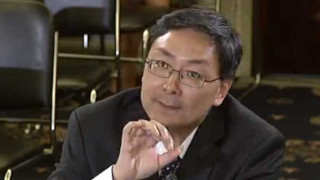
In an opinion piece published on January 28 in Foreign Affairs, "Why the World Lost to the Pandemic" Huang writes, "The uncoordinated, chaotic, and state-centric international response to COVID-19 sharply contrasts with the international response to the 2009 H1N1 pandemic and to the 2014 Ebola outbreak."
Huang describes how as the disease spread, countries assigned blame, set up travel barriers and inward facing, looking toward politics, national interests and national security concerns instead of working together to contain the virus.
"The results of this vaccine apartheid are now apparent: as of January 25, none of the 68.1 million vaccine doses administered globally had been provided in low- or low- to middle-income countries."
In a piece published on February 2 in Time magazine, "The Environmental Challenges of China's Recovery After COVID-19" Huang discusses the rapid economic recovery and revitalization that China is experiencing with its management of the pandemic. However accompanying its expansion are air quality issues, environment concerns and high levels of air pollutants as the nation gears up its industries to generate positive growth. Huang writes, "As GDP growth becomes a top priority, pollution control is on a back burner."
Describing the slow pace of China's rollout of its domestic coronavirus vaccine and issues around vaccine hesitancy, Huang shares in a February 3 NPR Morning Edition interview that in China, "People perceive there's a low risk of COVID infection, so there are really not a lot of people that feel like there's the urgency of getting vaccinated."
In an earlier interview on January 24, in The New York Times, "Has China Done Too Well Against Covid-19?" following the one-year anniversary of the lockdown in Wuhan a day earlier, Huang writes, "Within weeks of the new coronavirus's emergence last year, China began to report a dramatic drop in the number of confirmed cases. Then it put in place a "zero-infections" policy: The detection of even one case could instantly trigger aggressive quarantines, punishing travel restrictions and mass testing and contact tracing until the number of cases went back to nil."
As the Chinese government showcased its efforts in containing the disease internally and exporting the vaccine, the public felt such a degree of safety that they were not rushing to take the vaccine.
"China's comparative success at containing the coronavirus has put it in a bind: The population feels much safer than it should even as it remains very vulnerable to infection and is likely to for quite a while longer," he shares.
In an interview with NBC News on January 25, WHO in Wuhan is proving Covid's origins as politics hangs over mission" Huang discusses the political atmosphere facing the delegation of scientists who are in China to investigate the outbreak, not to assign guilt.
"But we also have to be realistic: This is a very politicized world, and if the research suggests China is the origin point of the outbreak, that hypothetical finding could indeed be used as smoking gun evidence to support claims that China is guilty," explains Huang.
Click here to learn more about Professor Huang, Director of the Center for Global Health Studies at Seton Hall University and editor-in-chief of the Journal of Global Health Governance.
Links to selected media coverage:
- Foreign Affairs: "Why the World Lost to the Pandemic"
- NBC News:"WHO in Wuhan is proving Covid's origins as politics hangs over mission"
- NPR: "China's COVID Vaccine Campaign Hits a Few Bumps: Goats and Soda"
- The New York Times: "Has China Done Too Well Against Covid-19?"
- Time: "The Environmental Challenges of China's Recovery After COVID-19"
Categories: Health and Medicine, Nation and World, Research




